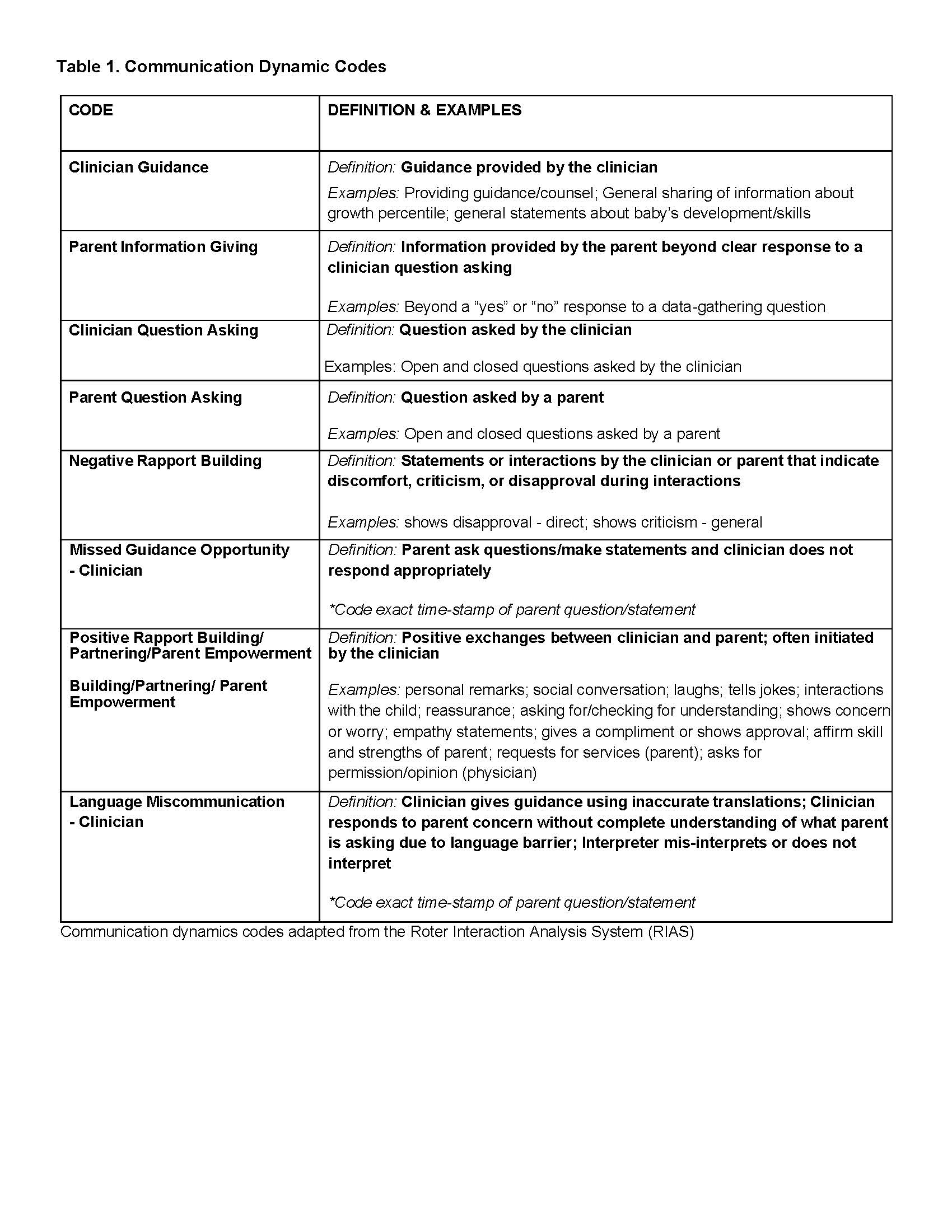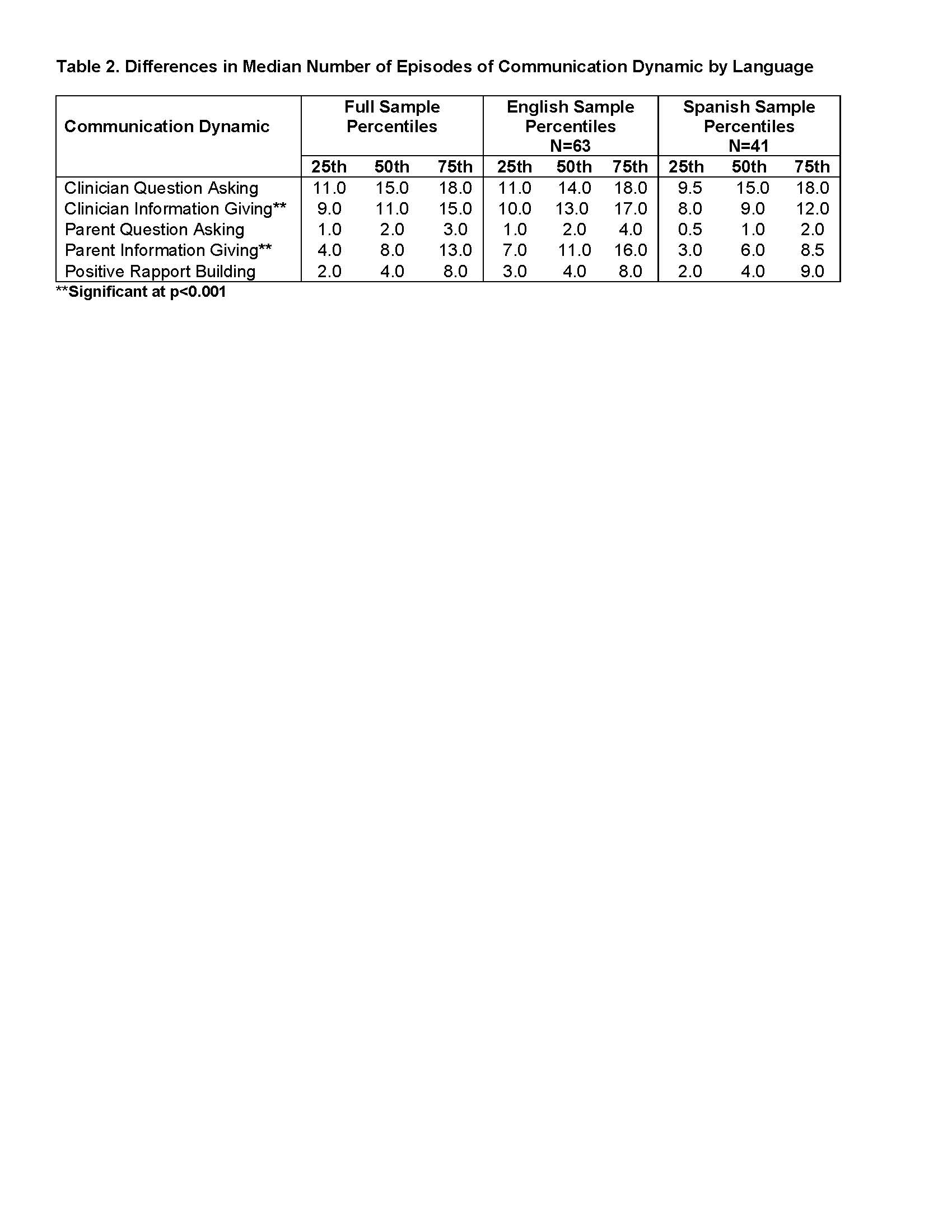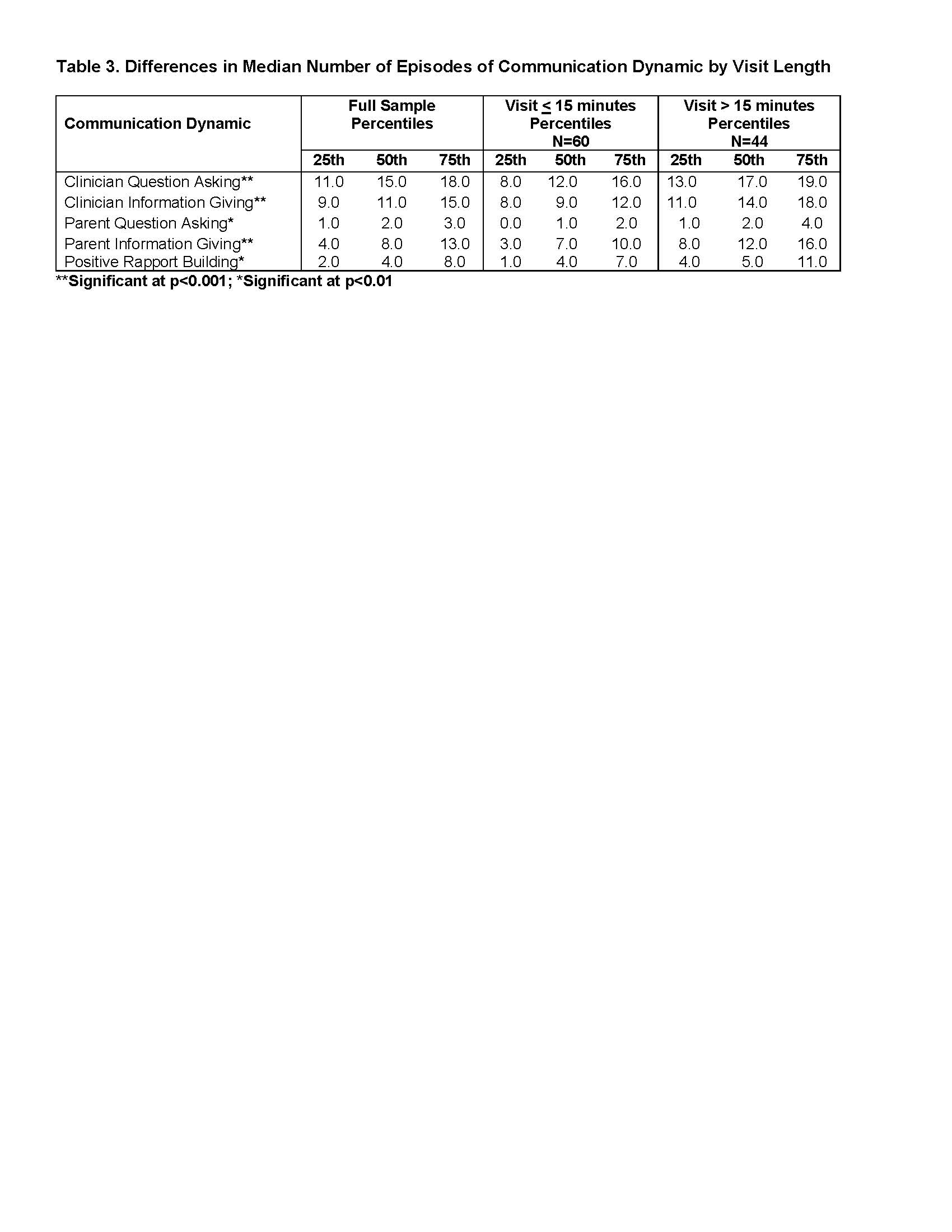General Pediatrics: Primary Care/Prevention
General Pediatrics 3
462 - Parent-Provider Communication Dynamics at 2-24 month Well Child Care Visits with English and Spanish Speaking Parents
Publication Number: 462.216
- KL
Kendra Liljenquist, PhD (she/her/hers)
Assistant Professor
Seattle Children's/University of Washington
University of Washington - Seattle Children's Research Institute
Seattle, Washington, United States
Presenting Author(s)
Background: Families marginalized due to racism and classism benefit greatly from the array of preventive care services in WCC, when delivered effectively through trusting relationships. Examining communication patterns between parents and providers at well-child care visits can inform strategies to improve care and address inequities in WCC service delivery.
Objective: Our objective was to assess preventive care topic coverage and communication dynamics between parents and clinicians during early childhood well-child care visits, and determine if differences exist during visits with English and Spanish speaking parents.
Design/Methods:
We audio-recorded well-visits for children ages 2-24 months. Recordings were analyzed in English or Spanish, and coded for content (e.g., feeding, sleep) and communication dynamics (e.g., clinician question-asking). Following qualitative analysis, the number of codes for visit content and communication dynamics were calculated for further quantitative analysis. To assess general communication patterns between parents and clinicians, Mann-Whitney U tests, were used to determine if the number of communication dynamic episodes differed significantly by parent language, visit length, and content discussed during the visit (e.g., development and behavior.
Results:
The sample consisted of 104 parents attending a WCC visit for their 2-24 months old child; 39% of visits were conducted in Spanish. Topics most often discussed related to physical health, nutrition, and growth. Topics least often discussed included neighborhood safety and parent social support. Instances of clinician and parent information giving happened significantly (p< 0.001) more often in visits with English speaking parents (Table 2). Longer WCC visits had significantly (p< 0.01) more instances of positive report building and parent question asking (Table 3); visits with positive report building were more likely to include discussions related to developmental milestones (p< 0.04), as well as parenting experience (p< 0.03).
Conclusion(s):
WCC visits with English speaking parents have significantly more instances of clinician and parent information giving than visits with Spanish speaking parents. Strategies that 1) lengthen the time parents spend with providers and care teams, and 2) enhance provider positive rapport building skills, may better facilitate discussions that can prompt identification of child development and parent support needs - enhancing preventive care and reducing inequities in WCC service delivery.


